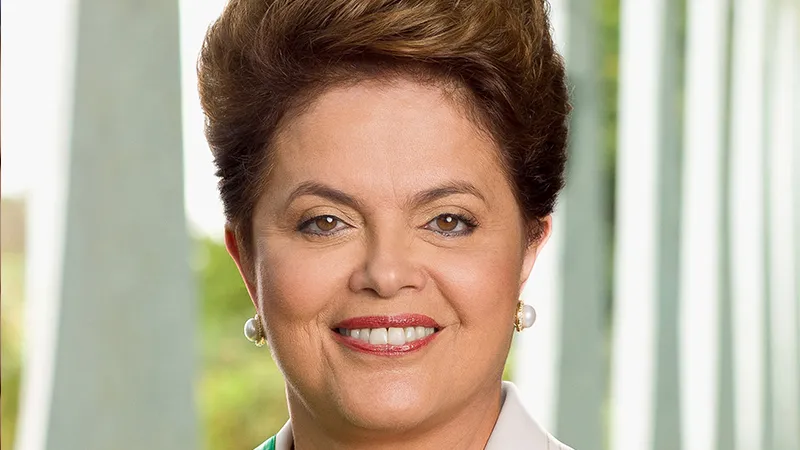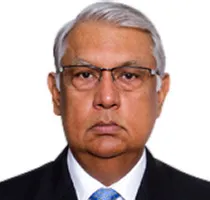-
CENTRES
Progammes & Centres
Location

Brazil’s Lower House of Congress or Parliament has voted to impeach the 68-year-old first female President Dilma Rousseff, serving her second term as President after re-election in 2014. Rousseff is now locked in a battle for political survival. The impeachment verdict was delivered after a rambunctious three-day long marathon debate which was televised nationwide. The House voted with an overwhelming majority of over two-thirds votes necessary to send Rousseff’s impeachment process to the Senate, the upper house of Parliament.
In the lower house there were scenes of scuffling and jubilation, with a sea of Brazilian flags waved by Parliament members, when the votes crossed the two- thirds mark of 342. The member casting the 342nd vote was carried bodily by other members after he cast his vote. The final tally went up to 367 votes favouring impeachment as against 137. There were seven abstentions and two no shows. The 81 member Senate now has to vote in early May on the impeachment resolution of the Lower House. A vote by a simple majority will set up Rousseff for trial by a Senate Committee < class="aBn" tabindex="0" data-term="goog_450274467">< class="aQJ">within 180 days. She will be suspended from her office during this period and Vice-President Michel Temer, seen as a challenger to Rousseff, will take over as acting President till Rousseff’s fate is decided. Temer will serve till 2018 when next election is due, if Rousseff is found guilty.
Cynical observers say that there are no untainted politicians in Brazil. Rousseff too has been tainted by huge corruption scandal that has engulfed the state-run oil company, Petrobras. The supreme irony is that among Parliament members voting for impeachment there are 300 who are facing graft, fraud and electoral violation charges. For instance, Eduardo Cunha, the Speaker, who leads the charge against Rousseff in the impeachment proceedings, is facing far more serious corruption and money laundering charges in the kickback scandal involving Petrobras. He also faces an ethics inquiry over undeclared Swiss bank accounts. Cunha is second in line to succeed Rousseff after Vice-President Michel Temer of the Democratic Movement Part, PMDP.
Rousseff has not been accused of personal corruption but for fudging the national budget to show a lower budget deficit before her re-election bid in 2014. This kind of fudging which rolls over payments into a new financial year is common practice adopted by many politicians in Brazil. In October 2015, a federal audit court judged that Rousseff had violated finance laws. This paved the way for members of the lower house to establish a special committee and begin impeachment proceedings. This committee recommended that the legislature seek Rousseff’s impeachment, opening the matter to a debate and a full vote. Judicial activism has reached an extreme form in Brazil which has the world’s largest Constitution and gives the Judiciary unprecedented independence.
The impeachment vote was greeted with fireworks in the mega cities of Rio and Sao Paulo. Brazilians in their hundreds of thousands, both pro and anti Rousseff, flooded the streets in peaceful demonstrations in almost every city and town. A recent public poll has shown that 60% of Brazilians wanted Rousseff out of office. Public outrage against her mounted after she appointed former President Lula, her predecessor, to a Cabinet post to enable him to escape investigation in the Petrobras scandal. A Cabinet Minister cannot be prosecuted while in office under Brazilian laws. The Petrobras scandal is the biggest corruption case in Brazil’s history and prosecutors have unearthed a racket which ran for over a decade with oil executives and politicians receiving bribes and kickbacks running into millions.
The 200 million people of Brazil are today deeply divided, a situation the country has not witnessed since the end of military rule in 1985. Rousseff’s leftist Workers’ Party has been in power for 14 years and presided over Brazil’s impressive economic growth which peaked in 2010 when GDP reached around USD 2.6 trillion, making Brazil the 8th largest economy in the world. Since 2010, the Brazilian economy has shrunk gradually, as the global economy has slowed. Brazil, as a large exporter of commodities, has also been hit hard by the slowdown in the Chinese economy. Brazil’s economic recession is also a major cause for Dilma Yousseff’s growing unpopularity.
Brazil’s lower middle and working classes have supported the welfare orientated policies of the Workers’ Party that has helped bring millions out of poverty. The slowing economy, however, has created growing unemployment among the very people that the Workers’ Party has counted as its support base. The Party has blamed “coup mongers” and vowed to fight it out in the Senate and the Rousseff government has expressed confidence that the Senate will defeat the impeachment resolution. Rousseff herself has decried the move against her as a “coup”. Her government’s application at the Supreme Court to dismiss the result of the impeachment vote on grounds of it being “contaminated” has been rejected. The Brazilian Democratic Movement Party, PMDP a coalition partner has abandoned the government, leading to speculation that both Temer and Cunha are involved in destabilising Rousseff.
Vice-President Michel Temer has positioned himself as her successor, if she is ousted from the Presidency. A successful lawyer and a back room political negotiator, the 75 year old Temer has projected himself as a senior statesman. His PMDP party has not been known to be ideological and has allied itself with other parties primarily in pursuit of political power. In Brazil’s politics every major politician is tainted and Temer too could face impeachment proceedings following a Supreme Court Ruling directing the Parliament to do so. This may not fructify given Temer’s the current situation in which he seems to enjoy enough support in the Parliament. The possibility that Brazil is forced into a new election cannot be ruled out since the Supreme Court is still to rule on a case which alleges that Rousseff’s election in 2014 was funded with money generated by corruption. The Supreme Court could annul the election and call for a new one, making Temer’s Presidency a short one.
Can Rousseff survive the impeachment process and preside over the Summer Olympics which are scheduled to be held < class="aBn" tabindex="0" data-term="goog_450274468">< class="aQJ">in six months in Rio de Janeiro? The possibility seems remote. Brazil is going through its worst economic recession in many decades. The present trend of rising inflation and shrinking GDP is unlikely to improve, as Brazil battles with other issues like the mosquito-borne Zika virus that has led to the birth of thousands of deformed babies and the forthcoming Olympic Games in Rio. Observers believe that Roussseff has antagonised the powerful business lobbies who have banded together to conspire against the incumbent President and move Brazil into more right wing market-friendly economic policies. Brazilian workers suspect that this will lead to privatisation and loss of jobs. This shift has been obvious with Brazil abandoning solidarity with other developing countries in the global Trade talks at a time when the World Trade Organisation is headed by a Brazilian. Rousseff’s supporters believe that neo-liberal forces want to roll back the people-friendly policies like free education, health services, efficient and modern public transportation and social safety measures implemented by the Lula and Rousseff governments in the last 14 years. The feudal oligarchs, who controlled the economy earlier, in cahoots with American-supported military dictatorships, have seen their power slipping under Presidents Lula and Yousseff. They are now fighting back and the coveted prize is Brazil’s enormous natural resources.
The impeachment proceedings have triggered a phase of political destabilisation of one of the largest countries in the world and the largest in Latin America. It is a bad sign for the region. It is also bad news for BRICS, a group which has 42% of the world’s population and a GDP of USD 16 trillion. India took over the Chairmanship of this group in February and is set to host the BRICS Summit later this year. The last BRICS Summit was held in Ufa, Russia. Brazil’s political and economic destabilisation may well be a “coup” by Western commercial and financial lobbies angry at losing their monopolies, with BRICS and China setting up rival Banks and moving steadily away from the US Dollar in bilateral agreements, like the mammoth China-Russia gas pipeline deal. Brazil’s long winter of discontent has begun and may well extend over several years till the next election in 2018.
This commentary originally appeared in the Daily Sun, Dhaka
The views expressed above belong to the author(s). ORF research and analyses now available on Telegram! Click here to access our curated content — blogs, longforms and interviews.

Pinak Chakravarty was a Visiting Fellow with ORF's Regional Studies Initiative where he oversees the West Asia Initiative Bangladesh and selected ASEAN-related issues. He joined ...
Read More +